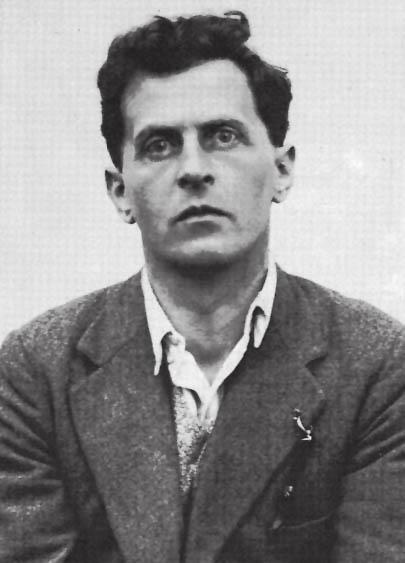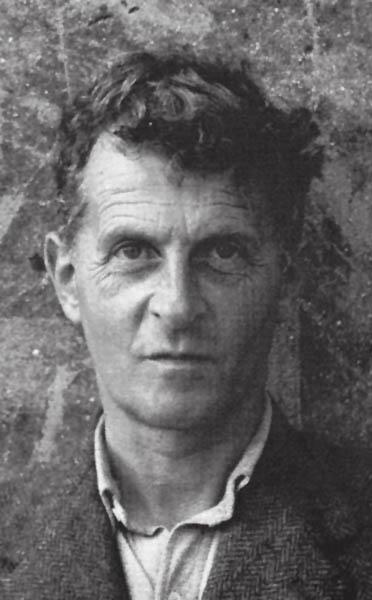
Ludwig Wittgenstein was a brilliant philosopher who suffered from chronic depression and suicidal thoughts throughout his life. Nevertheless, he’s considered the most influential philosopher in the 1900s. He put it upon his shoulders to investigate one application of practical philosophy: communicating effectively through language.
In this article, we sift through Wittgenstein’s attempts to eliminate ambiguity and make language clearer, starting with being profoundly logical to clearing the stage for language games.
Finding Philosophy
Wittgenstein started his studies in mechanical engineering, he specialized in aeronautics and even tried to design a propeller. Along his education, he became interested in the foundations of mathematics and shifted his focus to philosophy to study under Bertrand Russell at the University of Cambridge.
In Cambridge, John Maynard Keynes, perhaps the most renowned economist, invited Wittgenstein to join the Cambridge Apostles, an elite secret society. However, our protagonist didn’t particularly enjoy their meetings as he also suffered from depression during his years in England.
Early Work
Only death gives life its meaning.
There's only one way to know one’s actual purpose, and this way is facing death. In 1914, Wittgenstein volunteered to serve in the Austrian army in WWI. He was awarded the Military Merit Medal for his exceptionally courageous behavior and heroism.
During the Great War, he worked on the ideas that would later comprise his 75-page Tractatus Logico Philosophicus. In his book, he tried to map words in a sentence to propositional logic, in which statements can be evaluated based on inference rules. This makes language logically perfect for asserting factual statements or denying false ones.
Yet, there was one problem. Miscommunication doesn’t always happen because of a logical flaw but usually due to subtlety in understanding words. Wittgenstein acknowledged that words are vague and worked on reducing such ambiguity by stating that there should be a unique name for each symbol and never two names for the same symbol.
The word ‘dog’ is one such symbol. When a speaker refers to a dog, what is the image that comes to mind? There are many breeds of dogs. For someone, the first dog that comes to mind might be the husky from their childhood. For another, it’s possibly their neighbor’s golden retriever. Even within a breed, each dog is unique.
How can the speaker explain their exact image of a dog to another person? The speaker still has to use ambiguous words to describe the dog’s perception in mind. If they say a dog’s color is brown, well, that doesn’t help much. Your definition of brown is different from mine. So, are we trapped in this puzzle of miscommunication with no way out?
Philosophy is the product of misunderstanding language.
Misunderstanding arises when the speaker uses words they don’t have a clear image of or uses words that register different images in people’s minds. These different perceptions hinder progress in a conversation. Therefore, to reduce miscommunication, we can speak carefully, choose words mindfully, and avoid overloading terms and exaggerations at all costs.
Wittgenstein retired soon after publishing his book. He considered himself to have ‘solved’ philosophy as a language miscommunication. It seemed that there was nothing more to do.
Late Work

It wasn’t long until Wittgenstein returned to Cambridge to teach philosophy, his true calling. During this time, he crafted another work of genius, Philosophical Investigations. In the new book, Wittgenstein criticized his previous work as simplistic. He abandoned his pursuit of a non-ambiguous language, where every term is clear and only registers one mind-image in all the conversation participants’ minds, to favor a more nuanced view on language.
Language games
I shall also call the whole, consisting of language and the actions into which it is woven, the language game.
In his investigations, Wittgenstein considered every sentence in daily conversation, and even every word, as representing a guessing game between the speaker and the listener. Both the speaker and the listener ‘play a game’ to mutually understand the words’ underlying meaning in a given context. Wittgenstein saw philosophy’s function as to sort out these language games.
See, when a friend comes asking for advice, it’s not clear if they are playing an “asking for advice” language game or if they’ve already made their decision and they’re playing “looking for support and confirmation.” You have to guess which game they’re playing and respond appropriately to it.
According to Wittgenstein’s new theory, misunderstanding arises when conversation participants are not sure what game is being played because people never state their intentions clearly. As common wisdom reminds us, it’s never what people say; it’s what they mean.

Say a woman facing a difficult situation wants to play the “seeking comfort and support” game, but her husband is playing “fixing the problem.” The mismatch between her expectations and his response may result in disappointment, regardless of the husband’s good intentions. Although it’s not a lack of compassion from the husband, it might come off as such. The husband tries to fix his wife’s problem to make her feel better, but this is not what she wants. She wants to hear that he supports her and is proud of her efforts.
Sometimes at the early stage in relationships, it takes a few months for people to pick up on their partners' signals and thus provide them with their needs from a conversation. It might come off as a lack of compatibility, although that’s not necessarily true. As people repeat their actions over time, it becomes easier for their partners to learn cues and master their wants and needs in different situations.
Although unnatural, sometimes the initiator needs to state what game they’re playing, or perhaps instead the receiver could explicitly ask about the initiator’s intentions. Even if this results in an awkward opening of a conversation, it helps salvage the conversation in its entirety.

In April 1951, Wittgenstein died. By his side was his wife, Joan. His last words to her were: “Tell them I've had a wonderful life.” We surely wish this was the case; we surely do.
In the end, taking all the theories into account, we conclude: Communicating perceptions rather than words, and intentions rather than sentences leads to enjoyable conversations and chronic understanding.


